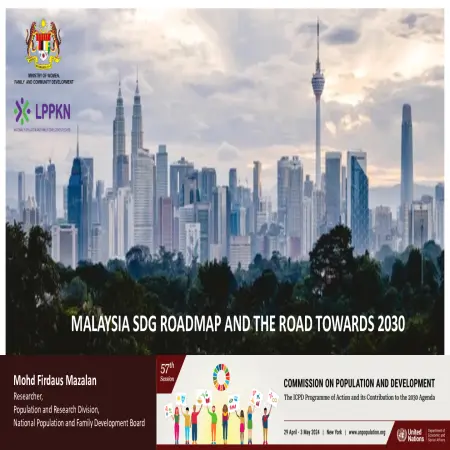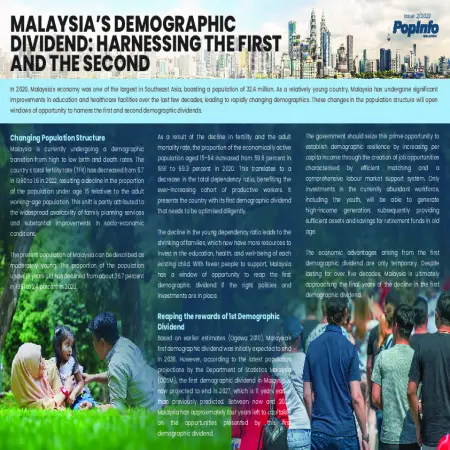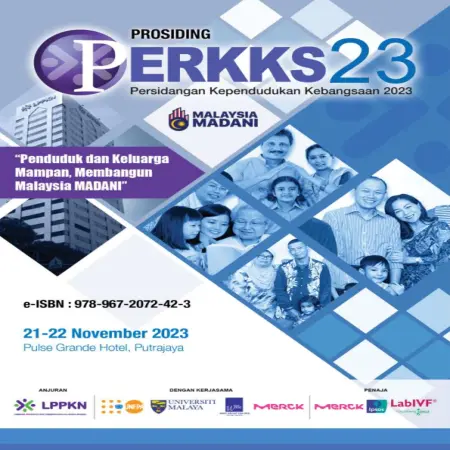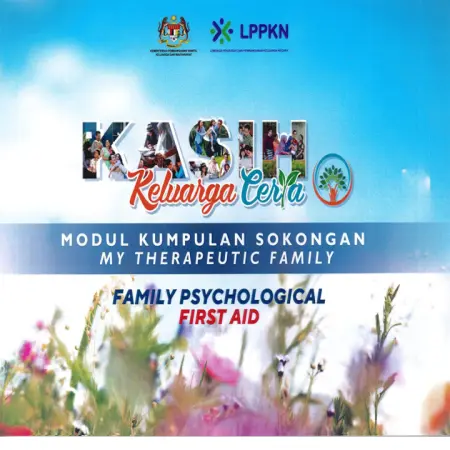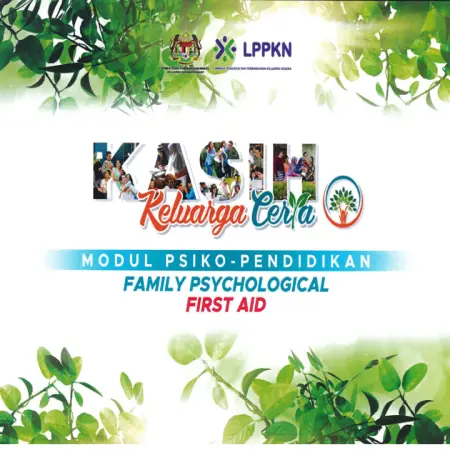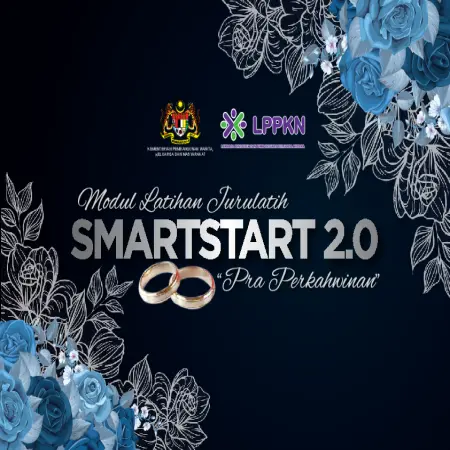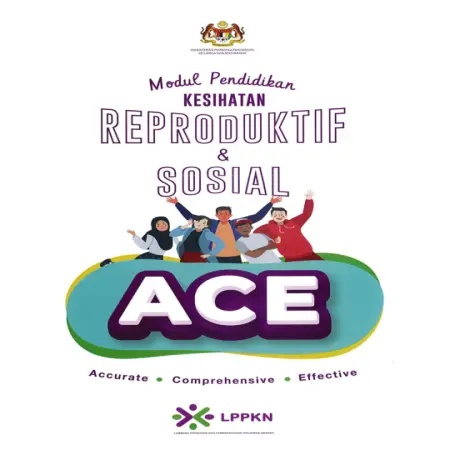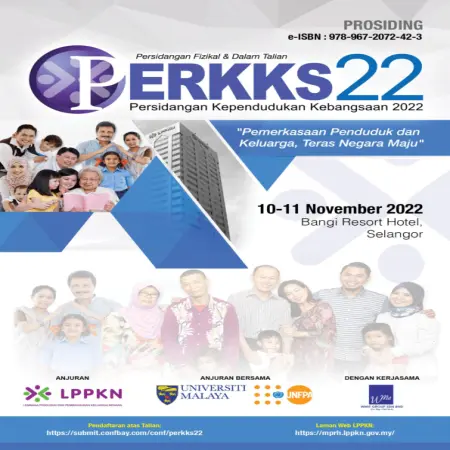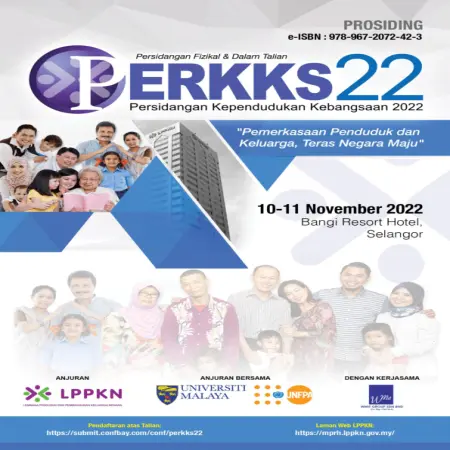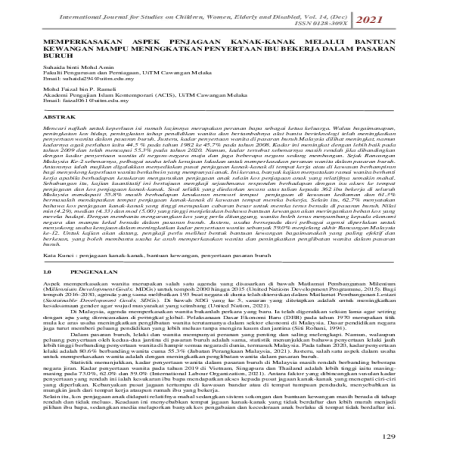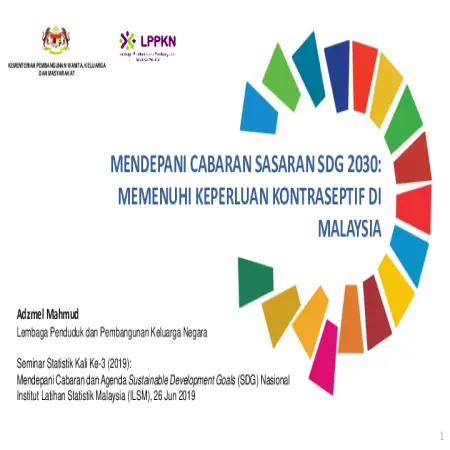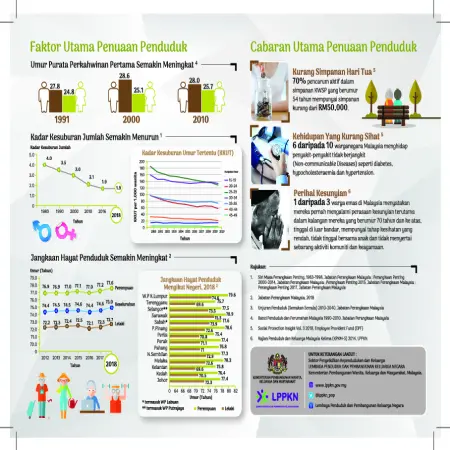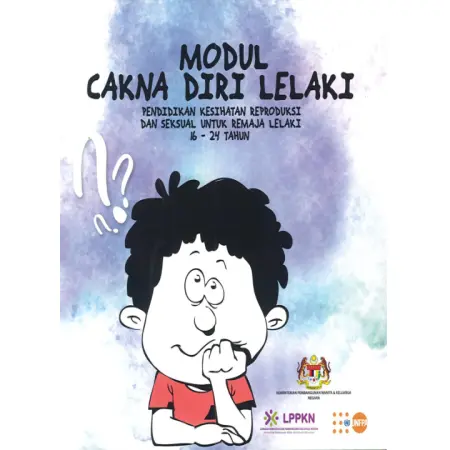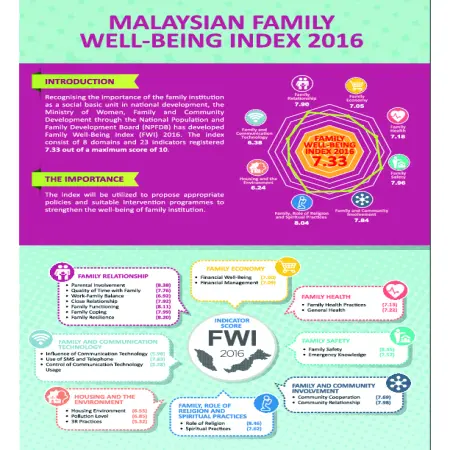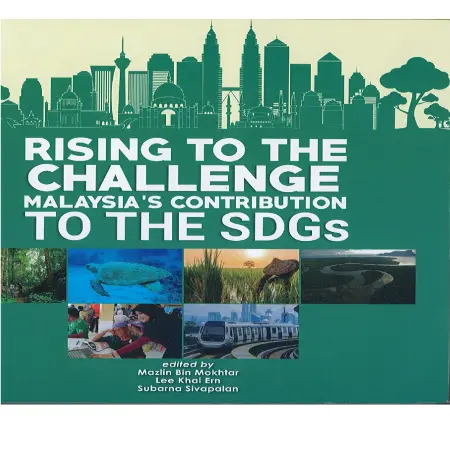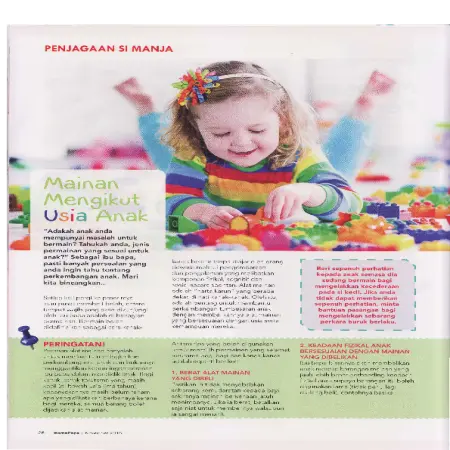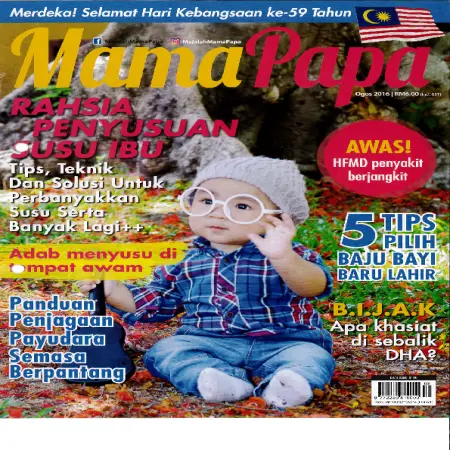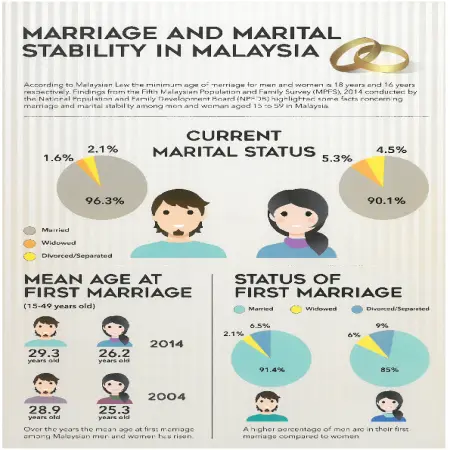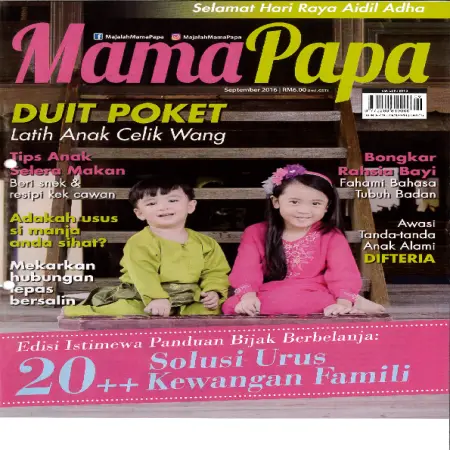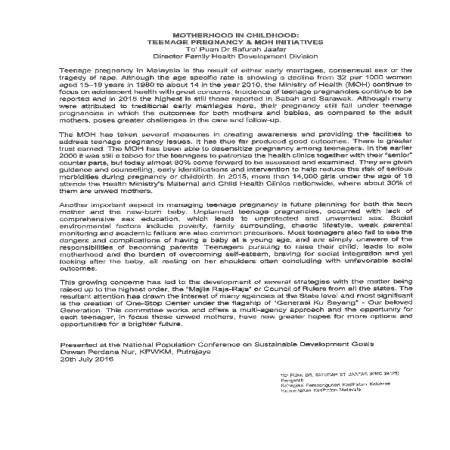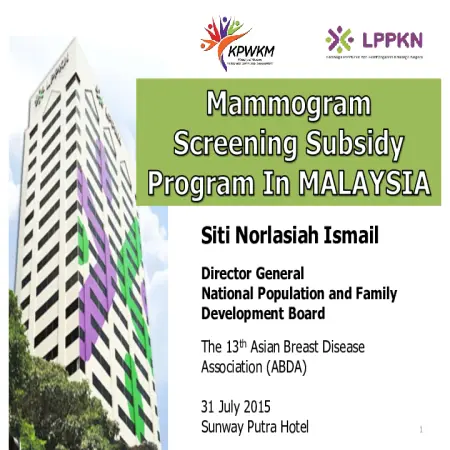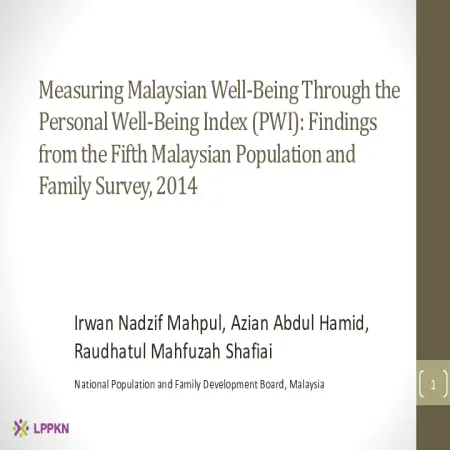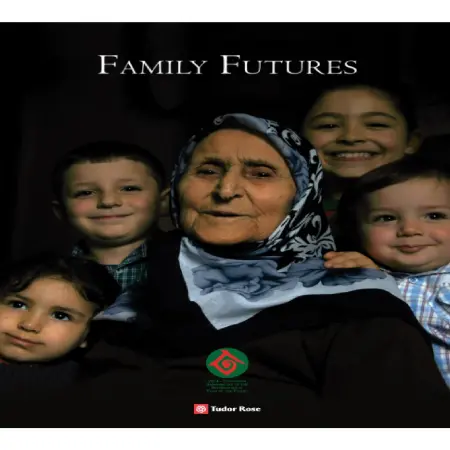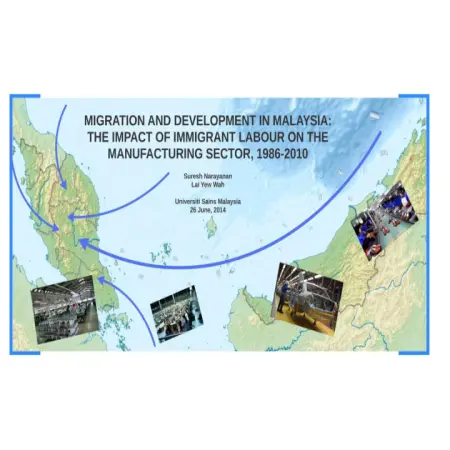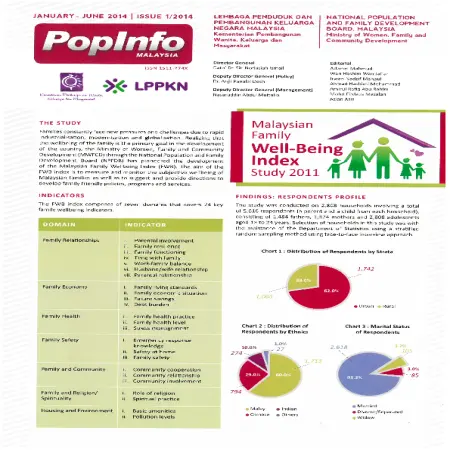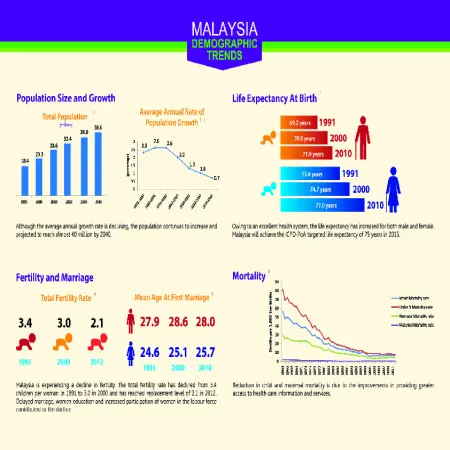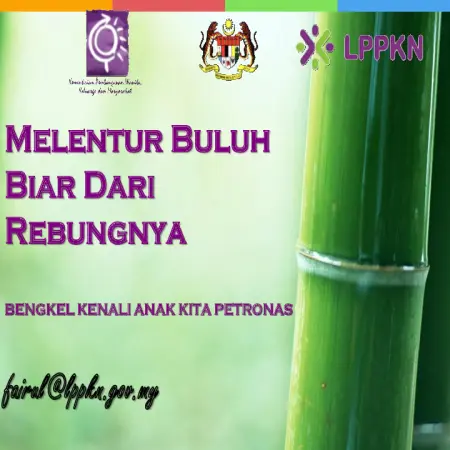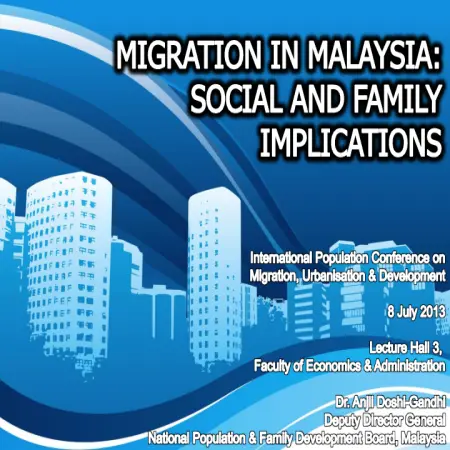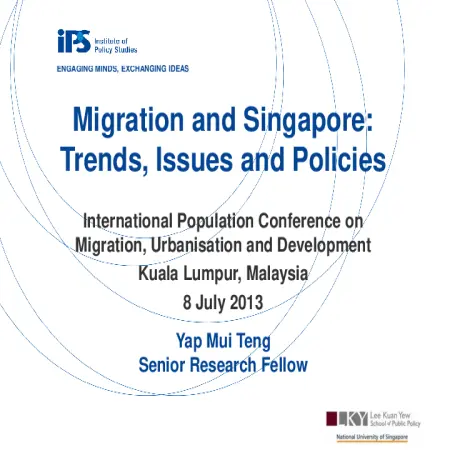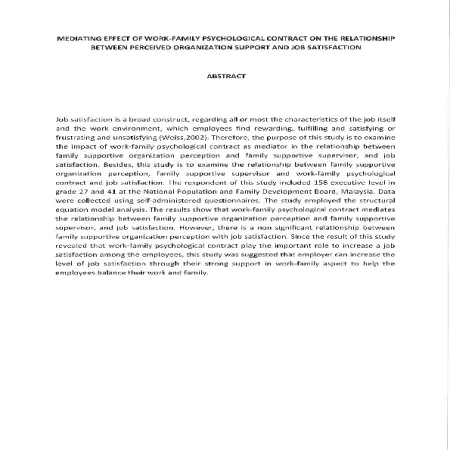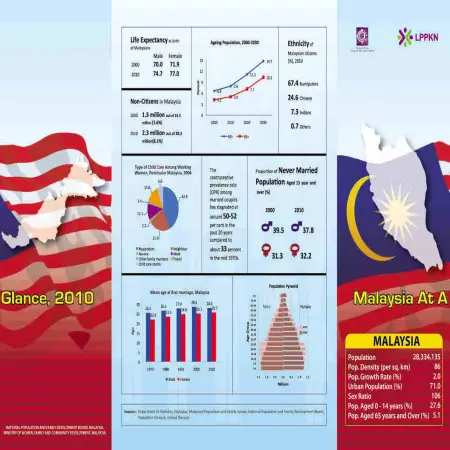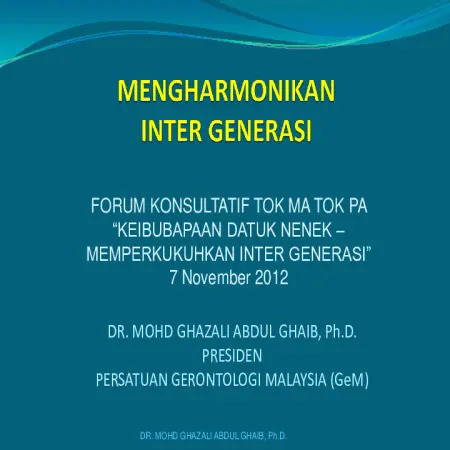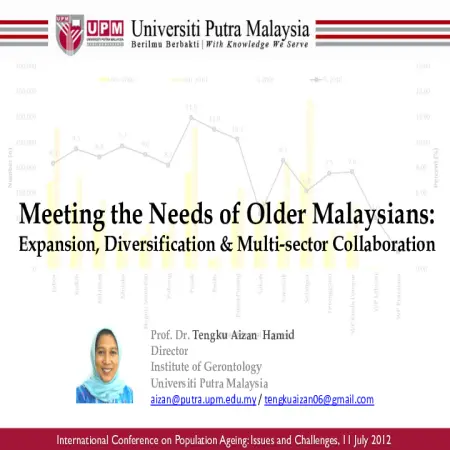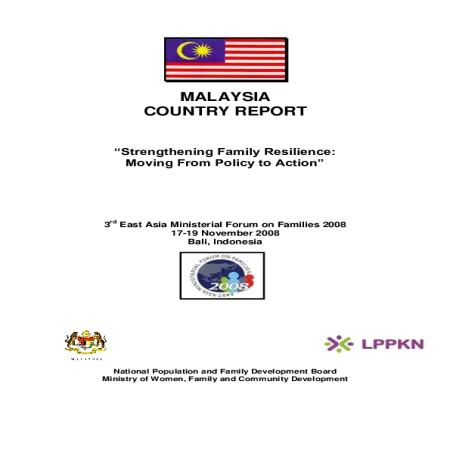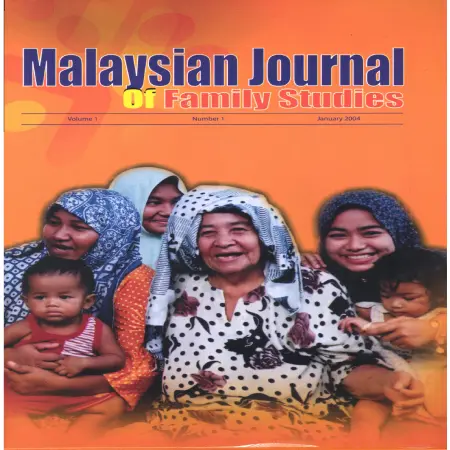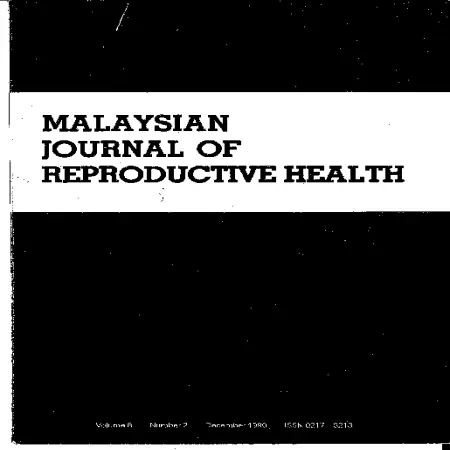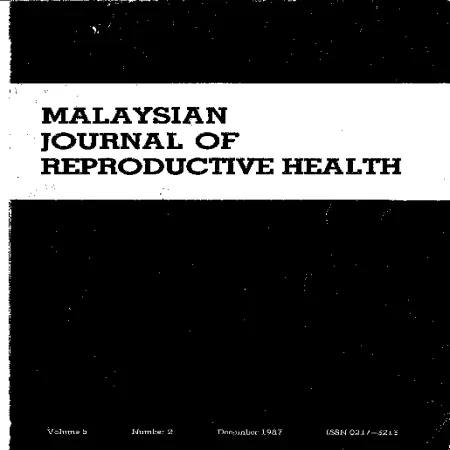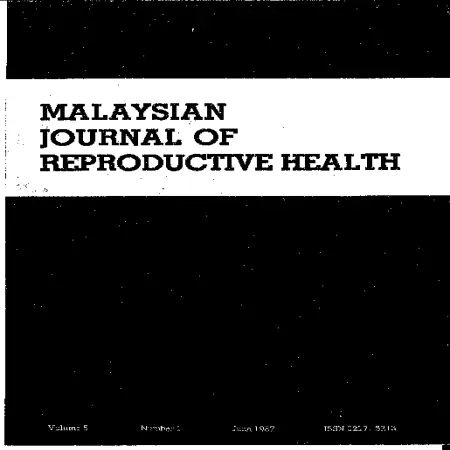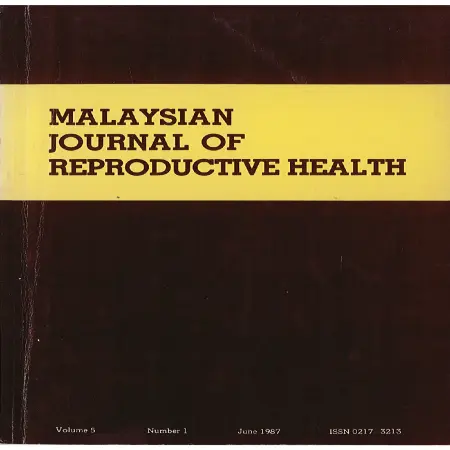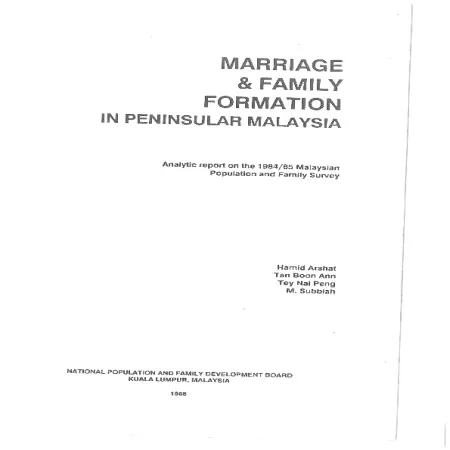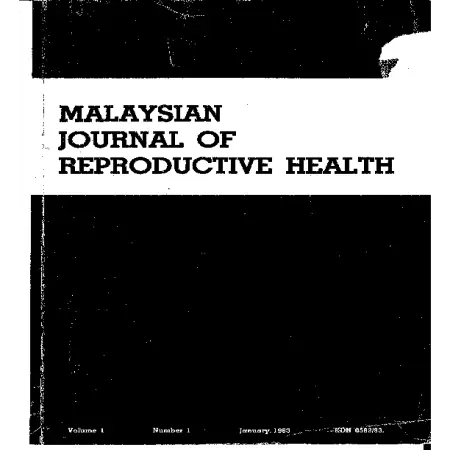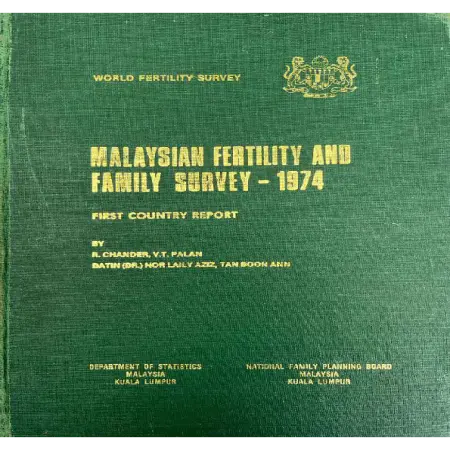Browse by Type
2024 (1)
|
|
Malaysia SDG roadmap and the road towards 2030
Item Type: Conference or Workshop Item
Editor:
Year: 00/05/2024
Abstract: Malaysia has undertaken periodic reviews to assess the achievement of ICPD goals and objectives. Malaysia has continuously embraced sustainable development in the national agenda. In this regard, the commitment to the 2030 Agenda for Sustainable Development (2030 Agenda) has been mapped with the Mid-Term Review of the 11th Malaysia Plan to support the Sustainable Development Goals (SDGs). The national development priorities of the Twelfth Plan continue to be aligned to the Sustainable Development Goals (SDGs) of the 2030 Agenda.
|
|
|
|
2023 (4)
|
|
Malaysia's demographic dividend: harnessing the first and the second
Item Type: Newsletter
Editor:
Year: 00/12/2023
Abstract: In 2020, Malaysia's economy was one of the largest in Southeast Asia, boasting a population of 32.4 million. As a relatively young country, Malaysia has undergone significant improvements in education and healthcare facilities over the last few decades, leading to rapidly changing demographics. These changes in the population structure will open windows of opportunity to harness the first and second demographic dividends.
|
|
|
|
|
|
Melaporkan kualiti tinjauan sistematik amalan bersesuaian pendidikan untuk kanak-kanak bawah dua tahun: Pematuhan mengikut garis panduan Prisma
Item Type: Book Section
Editor:
Year: 00/12/2023
Abstract: The aim of this study was to assess the quality of the reporting of the systematic review of educationally appropriate practices for children under two years of age using the guidelines of the Item Pelaporan Pilihan for Systematic Review and Meta-analysis (PRISMA). Results of searches from Scopus, Web of Science (WoS), and Taylor & Francis online have obtained 42 journal articles of empirical report data that describe the education of children under two tears of age starting in 2019-2023
|
|
|
|
|
|
Modul My Therapeutic Family: Family Psychological First Aid
Item Type: Module
Editor:
Year: 00/01/2023
Abstract: INTRODUCTION:-
KASIH Keluarga Ceria Program is a comprehensive initiative aimed to bolster the family institution in Malaysia, which is a cornerstone of national well-being. This program comprises two modules, namely:
i. Psychoeducation Module
ii. Support Group "My Therapeutic Family" Module
These modules were based on the Family Psychological First Aid (F-PFA) model, jointly developed by NPFDB and Universiti Pendidikan Sultan Idris (UPSI). The model integrated fundamental family dynamics, functional family systems, and Psychological First Aid principles recognized by the World Health Organization (WHO).
The Support Group "My Therapeutic Family" Module complements the Psychoeducation Module by focusing on maintenance, particularly in the post-intervention phase, addressing crisis management within the family unit.
The objectives of this program are:
1. Enhance parents' awareness regarding mental health and adaptive skills;
2. Educate parents with knowledge of Family Psychological First Aid (F-PFA);
3. Empower parents with referral skills for psychological assistance;
4. Establish support groups platform for parents; and
5. Forge intelligent collaborative network between NGOs, agencies, and referral experts.
|
|
|
|
|
|
Modul Psiko-Pendidikan "Family Psychological First Aid"
Item Type: Module
Editor:
Year: 00/01/2023
Abstract: KASIH Keluarga Ceria Program is a comprehensive initiative aimed to bolster the family institution in Malaysia, which is a cornerstone of national well-being. This program comprises two modules, namely:
i. Psychoeducation Module
ii. Support Group "My Therapeutic Family" Module
These modules were based on the Family Psychological First Aid (F-PFA) model, jointly developed by LPPKN and Universiti Pendidikan Sultan Idris (UPSI). The model integrates fundamental family dynamics, functional family systems, and Psychological First Aid principles recognized by the World Health Organization (WHO).
The Psychoeducation Module serves to impart knowledge on F-PFA concepts and skills necessary during the preparation and intervention phases of managing crises within the family unit. The module encompasses mental health screening, psychosocial intervention, and referral skill. Families, armed with F-PFA knowledge and skills, gain the capacity to adeptly respond during family crisis.
The objectives of this program are:
1. Enhance parents' awareness regarding mental health and adaptive skills;
2. Educate parents with knowledge of Family Psychological First Aid (F-PFA);
3. Empower parents with referral skills for psychological assistance;
4. Establish support groups platform for parents; and
5. Forge intelligent collaborative network between NGOs, agencies, and referral experts.
|
|
|
|
2022 (5)
|
|
Modul Latihan Jurulatih SMARTSTART 2.0 "Pra Perkahwinan"
Item Type: Module
Editor:
Year: 00/01/2022
Abstract: Introduction:-
SMARTSTART 2.0 Pre-Marriage Training the Trainers Trainer Module is a new module that has been processed more neat and organized as a result of creative ideas through the compilation of contents and activities based on observations related to the latest issues that often being the cause of divorce. This module is a standard reference and guideline specially prepared for the use of trainers to facilitate the learning process, teaching and guide the preparation of programme materials. Through this module, it is hoped that it can provide positive benefits especially to individuals or couples who want to get married or who are planning to start a family in order to be more physically, mentally, emotionally, spiritually and financially prepared.
Objectives:
To provide knowledge and skills to the participants about preparations towards marriage.
Program Duration:
2 day program
Target Participants:
Individuals or couples who want/plan to get married.
Interactive Content:
Promising difference through learning and delivery methods. Full involvement of participants through skills training and group activities.
|
|
|
|
|
|
Modul Kasih Keibubapaan Digital
Item Type: Module
Editor:
Year: 00/01/2022
Abstract: Since the country was struck by the Covid-19 pandemic, the new normal has led to increased reliance across all layers of society on devices and the internet for various daily activities such as work, learning, shopping, banking, entertainment, and various other matters. The Internet User Survey (IUS) 2020 by the Malaysian Communications and Multimedia Commission (MCMC) found:
i. Internet users in Malaysia increased to 88.7% in 2020 compared to 87.4% in 2018; and
ii. 50% of internet users spent 5 to 12 hours per day surfing the internet in 2020.
In addition to various potential threats that could target children in the cyber world, the IUS 2020 report found that the level of awareness among parents regarding cyber safety is decreasing. The findings of the report indicate:
i. The level of parental control awareness regarding children's internet usage declined from 62.4% in 2018 to 53.3% in 2020;
ii. 62.5% of parents do not use safety control software for the devices used by their children because they are unaware of such applications; and
iii. On average, parents are unable to specify in detail the safety measures needed to protect their children in the cyber world.
Furthermore, Cyber Security Malaysia's Study on the Standard of Cyber Safety Awareness Among School Students and Parents 2021-2022 revealed that the increase in online activities has led to an increased risk of cyber safety for students. According to the report, internet addiction, lack of digital citizenship awareness, and less effective parental control have contributed to increased cyber safety risks for the younger generation.
Recognizing that digital parenting issues indeed pose challenges and pressures on today's parenting duties, LPPKN has taken the initiative to develop the Digital Parenting KASIH Program using the allocation from the Covid-19 Fund (KWC-19) under the Mental Health Advocacy Initiative of the Ministry of Women, Family, and Community Development in 2022. This program aims to empower parents with the knowledge and skills needed to manage the challenges of children in the current digital generation.
The main objectives of the Digital Parenting KASIH Program are:
i. To instill positive values and ethics in the cyber realm;
ii. To enhance parents' understanding of digital challenges; and
iii. To improve parent’s skills in monitoring children’s usage of digital applications.
|
|
|
|
|
|
Modul Pendidikan Kesihatan Reproduktif dan Sosial ACE (Accurate, Comprehensive, Effective)
Item Type: Module
Editor:
Year: 00/01/2022
Abstract: LPPKN published an intervention module called Module ACE – Accurate, Comprehensive and Effective on 2021 as a product from The Youth Intervention Study: Best Practices for Youth Intervention Programs that was carried out in 2016. This module is suitable to be used for adolescents age 10 to 24 years old.
The ACE module covers comprehensive reproductive health and sexuality education which includes legislation on sexual violence, gender equality and human trafficking. The module has been implemented on targeted groups consist of youths and peer educators, and proven to expand their knowledge on reproductive health. The activities from the module are delivered using pedagogy method that encourage on two-way interaction and responsiveness.
|
|
|
|
|
|
Mothers’ views and their expected roles on parent-adolescent communication on sexual and reproductive health
Item Type: Book Section
Editor:
Year: 00/00/2022
Abstract: As parents generally have more contact than other adults with their children, they are the most suitable people in imparting correct knowledge about sexual and reproductive health (SRH) to their adolescents. However, apart from getting information from parents, adolescents also learn from other parties such as the internet, teachers, or peers. Thus, this study aimed to explore mothers’ views on parent-adolescent communication on SRH and their expected roles in communicating about SRH.
|
|
|
|
|
|
Malaysian youths at risk: a review of mental health and maladaptive behaviors
Item Type: Book Section
Editor:
Year: 00/00/2022
Abstract: The contemporary world with its constant changes and challenges often poses great risks to the mental health of young people who are at the age of learning about themselves and the world they live in. Similarly, recent developments have indicated that Malaysian youths today are greatly affected by mental health issues and are easily driven by maladaptive behaviors.
|
|
|
|
2021 (2)
|
|
Memperkasakan keusahawan sosial produk menstruasi bagi membasmi kemiskinan haid
Item Type: Article
Editor:
Year: 00/12/2021
Abstract: The Sustainable Development Goals (SDGs) set Goal-1 to end poverty in all its forms everywhere. However, menstrual poverty still happens to teenage girls and women from the past until now. It is not easy for them to get or buy menstrual products due to financial constraints. Based on a focus group discussion research session, the main objective of the study is to review the social entrepreneurship strategies carried out by three social entrepreneurship organizations – BunPad, KotMe and AntPower (pseudonym of the study) in dealing with the issue of menstrual poverty among underprivileged women.
|
|
|
|
|
|
Memperkasakan aspek penjagaan kanak-kanak melalui bantuan kewangan mampu meningkatkan penyertaan ibu bekerja dalam pasaran buruh
Item Type: Article
Editor:
Year: 00/12/2021
Abstract: Since the 2nd Malaysia Plan in fact, various efforts have been made by the government to empower the role of women in the labour market. One of that is employers are encouraged to provide childcare centers at work or in nearby areas to support the needs of married women with children. This is because, many studies state that many women quit their jobs when faced with difficulties of managing childcare in addition to the relatively increasing cost of childcare. Therefore, this quantitative study aims to examine the extent to which respondents are faced with the issue of access to childcare and the cost of childcare. The survey distributed online to 362 working mothers across Malaysia found that 55.8% still faced difficulties in finding childcare in their residential areas and 61.3% had problems finding childcare in their working area.
|
|
|
|
2019 (1)
|
|
Mendepani cabaran sasaran SDG 2030: memenuhi keperluan kontraseptif di Malaysia
Item Type: Conference or Workshop Item
Editor:
Year: 00/00/2019
Abstract: This paper will present on the trends and achievements of contraceptive use rates, unmet contraceptive requirements and modern contraceptive demands met. In addition, the presentation will also touch on issues and challenges on the rate of contraceptive use which is still hovering around 50 to 52 percent over the past three decades as well as the level of unmet needs in Malaysia which is relatively high compared to other Asean countries.
|
|
|
|
2018 (2)
|
|
Malaysia negara tua 2030
Item Type: Infographic
Editor:
Year: 00/12/2018
Abstract: This infographic shows about the main factors and challenges of aging in Malaysia. According to the United Nations (UN) definition, senior citizens are among those aged 60 and above. This definition was introduced during the “World Assembly on Aging” held in Vienna in 1982. In recognition of the elderly, the UN through Resolution No. 45/106 has also declared October 1 as International Senior Citizens Day. In Malaysia, the National Senior Citizens Day celebration has been celebrated on October 1 every year since 1992.
|
|
|
|
|
|
Modul Cakna Diri Lelaki Pendidikan Kesihatan Reproduksi dan Seksual Untuk Remaja Lelaki Berumur 16-24 Tahun
Item Type: Module
Editor:
Year: 00/01/2018
Abstract: The Sexual and Reproductive Health Module for boys and young men age 16 to 24 years was developed to address sexual and reproductive health as well as social issues for boys and young men. It is also aim to create awareness on the importance of reproductive health and social education as well as gender equality for future well-being. This module is divided into two (2) main target groups i.e. general adolescents (Module A) and most-at-risk adolescents (Module B). The main components of Module A includes topics on adolescent growth, developmental, health, psychosocial - 3R (Respect, Relationship and Responsibility), laws and regulations, drugs and substance abuse. Module B covers topics on risky social behaviors, risky sexual behaviors and teen pregnancy. This module is developed as an interactive form using various learning methods such as role play, sketches, group work and discussions to attract participation of boys and young men.
|
|
|
|
2017 (4)
|
|
Malaysian Family Well-Being Index 2016
Item Type: Infographic
Editor:
Year: 00/02/2017
Abstract: Recognising the importance of the family institution as a social basic unit in national development, the Ministry of Women, Family and Community Development Board (NPFDB) has developed Family Well-Being Index (FWI) 2016. The consist of 8 domains and 23 indicators registered 7.33 out of a maximum score of 10.
|
|
|
|
|
|
Mama Care
Item Type: Book Section
Editor:
Year: 01/01/2017
Abstract: One aspect of women's reproductive health care which is increasingly in demand is postnatal care services. In order to improve the welfare of women in low-income households and to recognise the skills traditionally passed down from generation to generation, Mama Care Postnatal Care Programme was established in 2012 under the 7th National Blue Ocean Strategy (NBOS), 1Malaysia Women's Initiative and Self Empowerment (1MWISE). It is targeted single mothers, elderly and women from low-income household.
|
|
|
|
|
|
Malaysian Family Wellbeing Index
Item Type: Book Section
Editor:
Year: 00/00/2017
Abstract: Family institutions need to be strengthened to balance the rapid process of social and economic development of the country. This is important because the family is the basic social unit that prepares the supplies the human capital for the national development. Given the importance of family wellbeing for the future of the nation, scientific studies ought to be conducted to measure the wellbeing of families in this country.
|
|
|
|
|
|
Malaysian infertile men and women : do they suffer mental health issues?
Item Type: Conference or Workshop Item
Editor:
Year: 00/00/2017
Abstract: This study revealed that Malaysian infertile men and women demonstrated susceptibility to mental health problems that occurs more commonly among women than men. Thus, this study may facilitate fertility facilities to strategize and redesign better intervention for the infertile couples.
|
|
|
|
2016 (5)
|
|
Mainan mengikut usia anak
Item Type: Article
Editor:
Year: 00/11/2016
Abstract: The role of toys is only to help improve the development of the child and not to replace the importance of the role of parents in educating the child. For children, especially those who are still young (under the age of five), most of them still do not understand what is said to be dangerous because for them, all items can be used as toys. Among the tips that can be used to choose games that are safe, especially for babies and children are such as the weight of the toy purchased, not easily removable or broken, suitable for the child's age and others.
|
|
|
|
|
|
Memilih jantina bayi: bahagian 2
Item Type: Article
Editor:
Year: 00/08/2016
Abstract: From time immemorial, our ancestors practiced certain tips and diets to get the desired gender of the child. However, there is still no scientific explanation of the effectiveness and accuracy of the practice. Learn how to determine the sex of a baby from a scientific point of view.
|
|
|
|
|
|
Memilih jantina bayi: bahagian 3
Item Type: Article
Editor:
Year: 00/00/2016
Abstract: The tendency to choose the sex of the baby by the couple on several factors has been discussed in the previous article (part 1 and part 2) while in this part 3 shares about other methods in science that are also said to be a factor to the determination of the sex of the baby. Among them are the "time" technique together (intercourse time), pre-implantation genetic diagnosis technique (PGD/PGS) to determine the quality of the embryo and the technique of 'prenatal sex identification' where through this technique, the sex of the baby in the womb is determined by taking blood samples from the mother and DNA tests were performed on the samples.
|
|
|
|
|
|
Motherhood in childhood: teenage pregnancy & MOH initiatives
Item Type: Conference or Workshop Item
Editor:
Year: 00/00/2016
Abstract: Teenage pregnancy in Malaysia is the result of either early marriages, consensual sex or the tragedy of rape. Although the age specific rate is showing a decline from 32 per 1000 women aged 1-19 years in 1980 to about 14 in the year 2010, the Ministry of Health (MOH) continue to focus on adolescent health with great concerns. Incidence of teenage pregnancies continue to be reported and in 2015 the highest is still those reported in Sabah dan Sarawak. The MOH has taken several measures in creating awareness and providing the facilities to address teenage pregnancy issues. They are given guidance and counselling, early identifications and intervention to help reduce the risk of serious morbidities during pregnancy or childbirth. This presentation discusses about teenage pregnancy problem in Malaysia.
|
|
|
|
2015 (2)
|
|
Mammogram Screening Subsidy: Program in Malaysia
Item Type: Conference or Workshop Item
Editor:
Year: 00/00/2015
Abstract: In Malaysia, a woman has a 1:19 life time risk of developing breast cancer in her lifetime. Breast cancer contributes 32.3% of all female cancers. To reduce the incidence of breast cancer, the Government has embarked on the subsidised Mammogram Screening Program. This aims at promoting greater awareness and encouraging women to undergo mammogram screening for early detection of breast cancer. The objective of this subsidy is to promote greater awareness on breast cancer and the importance of breast examination.
|
|
|
|
|
|
Measuring Malaysian well-being through the personal well-being index (PWI): findings from the fifth Malaysian Population and Family Survey, 2014
Item Type: Conference or Workshop Item
Editor:
Year: 00/00/2015
Abstract: The aim of this study is to measure the well-being of Malaysian population through the use of PWI scale developed by the International Wellbeing Group (IWbG). Responses on the PWI scale were collected from over 10,000 adults aged 18 to 59 drawn from a sample of 18,852 living quarters throughout the country. Through the MPFS-5, the Personal Well-Being Index for the Malaysian was recorded at 7.71 out of a maximum score of 10. Out of the eight domains identified, the Spirituality or Religion domain recorded the highest score of 7.56. It then followed by the domain scores of Personal Relationships (7.54), Community-Connectedness (7.52), Personal Safety (7.35), Personal Health (7.10), Future Security (6.96), Standard of Living (6.58) and Achieving in Life (6.56).
|
|
|
|
2014 (4)
|
|
Malaysia's initiatives for sustainable family development
Item Type: Book Section
Editor:
Year: 01/01/2014
Abstract: Various initiatives to strengthen the family institution have been undertaken by the Government of Malaysia through the Ministry of Women, Family and Community
Development (MWFCD). Through its agency, the National Population and Family Development Board (NPFDB), the MWFCD has formulated, developed and implemented policies and programmes such as the National Family Policy,
1Malaysia Family First (1MF1st) and 1Malaysia Youth Empowerment and Support (1MYes) programmes, One-Stop Family Centres, and family education programmes such as the Strengthening of Marriage Institution (SmartStart remarriage programme), Parenting@Work, Smart Belanja@Lppkn (family financial management programme), KASIH Parenting Modules and counselling services.
To ensure sustainable family development, the National Family Policy (NFP) and its accompanying plan of action was launched in March 2011 and implemented by the NPFDB in partnership with other ministries, departments and related non-government organizations (NGOs). The aim of this explicit policy is to develop prosperous, healthy and resilient families to ensure social stability. The NFP is
a key policy that focuses on aspects of family well-being and development, providing direction for the development of family-friendly programmes and services for nurturing healthy and resilient families in line with the aspirations
of Vision 2020.
|
|
|
|
|
|
Migration and development in Malaysia: the impact of immigrant labour in the manufacting sector, 1986-2010
Item Type: Conference or Workshop Item
Editor:
Year: 00/00/2014
Abstract: The heavy reliance on immigrant labour in manufacturing remains a contentious issue and we address three concerns with respect to their impact are did they displace native workers or complement them? Did their influx impede real wage growth? And did they lower real productivity growth? We found that immigrants complemented local workers in the initial phase when a labour shortage emerged at prevailing wage levels but displaced them in later periods because employers favoured them due to significant non-wage cost savings. Finally, the contention that immigrant labour use contributed to keeping productivity low found some support. In the light of these findings we discuss policy options with respect to immigrant workers.
|
|
|
|
|
|
Malaysian family well-being index study 2011
Item Type: Newsletter
Editor:
Year: 00/00/2014
Abstract: Realizing that the wellbeing of the family is the primary goal in the development of the country, the Ministry of Women, Family and Community Development through the National Population and Family Development Board (NPFDB) has pioneered the development of the Malaysian Family Wellbeing Index (FWB). The aim of the FWB index is to measure and monitor the subjective wellbeing of Malaysian families as well as to suggest and provide directions to develop family friendly policies, programs and services. The study was conducted on 2,808 households involving of 5,616 respondents. Through this study, the Family Wellbeing Index (FWB) was recorded at 7.55 out of a maximum score of 10 indicating that Malaysian families have a relatively high level of wellbeing and are able to manage the challenges of development. Of the seven domains identified, the Family and Religion / Spirituality domain recorded the highest score of 8.25.
|
|
|
|
2013 (3)
|
|
Migration in Malaysia: social and family impact
Item Type: Conference or Workshop Item
Editor:
Year: 00/00/2013
Abstract: This paper highlights the key findings from surveys done by the Ministry of Women, Family and Community Development (MWFCD) and the National Population and Family Development Board (NPFDB). The Survey on the Implications of Employing Foreign Domestic Helpers (FDH) on the Family Institution in Malaysia was conducted by the MWFCD in 2009. The study found that many families rely on FDH for child care and domestic work. Some of the families find that having a FDH has a negative effect on their family relationships while some have no problems with it. The study on Indonesian Migrants in Tawau, Sabah conducted by the NPFDB in 2010 found that the local community in Sabah felt that the presence of Indonesian migrants in their community had both positive and negative effects. The effects of migrants were studied from the perspective of economy, education, health, safety, culture, housing and neighbourhood.
|
|
|
|
2012 (4)
|
|
Mediating effect of work-family psychological contract on the relationship between perceived organization support and job satisfaction
Item Type: Thesis
Editor:
Year: 01/10/2012
Abstract: Job satisfaction is a broad construct, regarding all or most the characteristics of the job itself and the work environment, which employees find rewarding, fulfilling and satisfying or frustrating and unsatisfying (Weiss,2002). Therefore, the purpose of this study is to examine the impact of work-family psychological contract as mediator in the relationship between family supportive organization perception and family supportive supervisor, and job satisfaction. Besides, this study is to examine the relationship between family supportive organization perception, family supportive supervisor and work-family psychological contract and job satisfaction. The respondent of this study included 158 executive level in grade 27 and 41 at the National Population and Family Development Board, Malaysia. Data were collected using self-administered questionnaires. The study employed the structural equation model analysis. The results show that work-family psychological contract mediates the relationship between family supportive organization perception and family supportive supervisor, and job satisfaction. However, there is a non significant relationship between family supportive organization perception with job satisfaction. Since the result of this study revealed that work-family psychological contract play the important role to increase a job satisfaction among the employees, this study was suggested that employer can increase the level of job satisfaction through their strong support in work-family aspect to help the employees balance their work and family.
|
|
|
|
|
|
Mengharmonikan intergenerasi
Item Type: Conference or Workshop Item
Editor:
Year: 00/00/2012
Abstract: The purpose of the presentation is to give an overview of the differences between the older and younger generations in Malaysia and suggest some steps to bring the old and the young together. The formulation of more policies that consider the needs of the younger generation such as in sports, education, tourism, politics and media. Among the steps that can be taken to bridge the gap between the old and young is to increase public awareness of the issue aging and intergenerational unity through seminars, conferences, writings, films or hold special activities such as concerts, exhibitions, competitions video-games and others.
|
|
|
|
|
|
Meeting the needs of older Malaysians: expansion, diversification, and multi-sector collaboration
Item Type: Conference or Workshop Item
Editor:
Year: 00/00/2012
Abstract: The older population in Malaysia grew from 0.5 million in 1970 to almost 2.3 million in 2010, making up about 8% of the current total population. By 2020, one in ten Malaysians will be an older persons aged 60 years or over. Older Malaysians are a heterogeneous group with diverse demographic, socio-economic, cultural and religious characteristics. This paper assesses the adequacy, affordability, sustainability, equitability, predictability and robustness of current policies, programs and services to meet the needs of the ageing population in Malaysia. Based on the World Bank’s multipillar pension taxonomy, the analysis will focus on the social assistance scheme for the elderly (BOT), Pay-as-you-go financed state pension (JPA) and defined contribution funds (EPF). Between conditional cash transfers and mandatory retirement savings, the central role of informal support systems in old age has often been overlooked. Result from the past studies have shown that the family has played a central role in providing care and support for aged in Malaysia. A majority of older Malaysians still co-reside with their adult children and receives financial assistance from them. Older Malaysians today are living longer, better educated and wealthier and they will become consumers of a burgeoning silver industry. Balancing social and economic priorities in national development is a challenging task, but the two goals are not mutually exclusive. My topic focus on welfarism or paternalism will continue to render ageing populations as a dependent population, instead of empowering them. An inter-dependence approach, rooted in a mix of individual responsibility, family obligations, active civil society and state provisions (regulatory and non-regulatory), will enable a more broad-based and sustainable solution to meet the present and future needs of the elderly.
|
|
|
|
2010 (1)
|
|
Malaysia country report at 4th East Asia Ministerial Forum on Families, "Safe and resilient families: protecting and empowering at-risk and high risk families", Kuala Lumpur, 7-10 November 2010
Item Type: Country Statement
Editor:
Year: 00/00/2010
Abstract: Malaysia recognizes the family as a natural and fundamental
social unit that provides valuable human resource and forms the
backbone for solidarity, security and nation building. Malaysia
believes in the importance of family development in line with the
objective of creating a caring society ; Family is PRIORITY NO. 1
|
|
|
|
2008 (1)
|
|
Malaysian country report 3rd East Asia Ministerial Forum on Families 2008, "Strengthening family resilience: moving from policy to action"
Item Type: Country Statement
Editor:
Year: 00/11/2008
Abstract: Social policies and programmes affecting families have been revised and improved from time to time since Independence in 1957 to adapt to new challenges and needs of families. The importance of the family as a foundation for a strong Malaysia was first given prominence when Vision 2020 (now renamed the National Vision Policy–NVP) was announced in 1991 which strived to make Malaysia an industrialised nation by the year 2020. This vision recognizes that PEOPLE are the center of development and the critical element of this Vision is to produce citizens of good character embedded with an appropriate balance of suitable knowledge and skills and the inculcation of positive moral values, ethics and innovativeness. It particularly identified a “social system in which society will come before self, in which the welfare of the people will revolve not around the state or the individual but around a strong and resilient family system.”
|
|
|
|
2004 (1)
|
|
Malaysian Journal of Family Studies ( Volume 1, Number 1, January 2004)
Item Type: Book
Editor:
Year: 00/01/2004
Abstract: The publication of the Malaysian Journal of Family Studies (MJFS)
by the National Population and Family Development Board marks
another milestone for the Ministry of Women, Family and
Community Development in our quest towards intellectual
excellence. As we strive to be o knowledge-based society,
information derived from scientific studies enables us to understand
better the social milieu in which we live. Thus it is hoped that this
journal could serve as a useful reference for all those interested
and concerned with family issues.
|
|
|
|
1990 (1)
1987 (3)
|
|
Maternal reciprocal translocation t(1p;6p) in a couple with recurrent spontaneous abortion
Item Type: Article
Editor:
Year: 00/06/1987
Abstract: G-banded chromosome complements were analyzed from peripheral blood lymphocytes of a couple who had experinced for spontaneous abortions. The karyotype of the husband was designated as 46,XY, while the wife's karyotype was designated as 46,XX, t(1p;6p). Balanced reciprocal translocations appear to be associated with the recurrent spontaneous abortions experienced by the couple. We report here a case of a maternal (1p;6p) reciprocal translocation in a couple with repeated fetal loss.
|
|
|
|
1984 (1)
1983 (1)
|
|
Malaysian Journal of Reproductive Health (Volume 1, Number 1, January 1983)
Item Type: Book
Editor:
Year: 00/01/1983
Abstract: An official publication of Reproductive Research Centre, National Family Planning Board, Malaysia, in collaboration with the Malaysian Association of maternal and Neonatal Health.
|
|
|
|
1977 (1)
|
|
Malaysian Fertility and Family Survey - 1974
Item Type: Research Report
Editor:
Year: 00/04/1977
Abstract: The Malaysian Fertility and Family Survey (MFFS) embodies two major objectives, one international and one national. Internationally, the MFFS is part of the World fertility Survey (WFS) programme, aimed at studying human fertility and reproductive behaviour. Nationally it responds to the need for reliable data on the Knowledge, Attitudes and Practice (KAP) of family planning on which to base national planning of population programmes.
|
|
|
|





